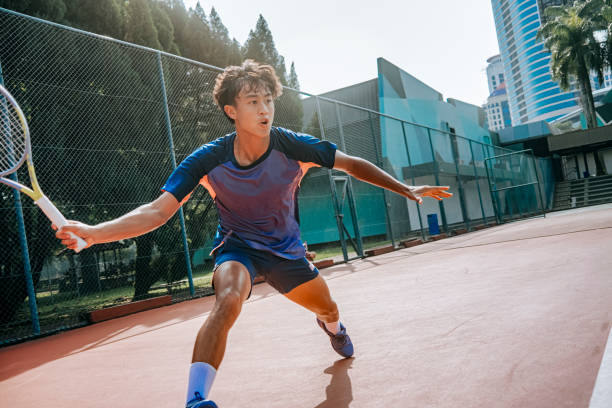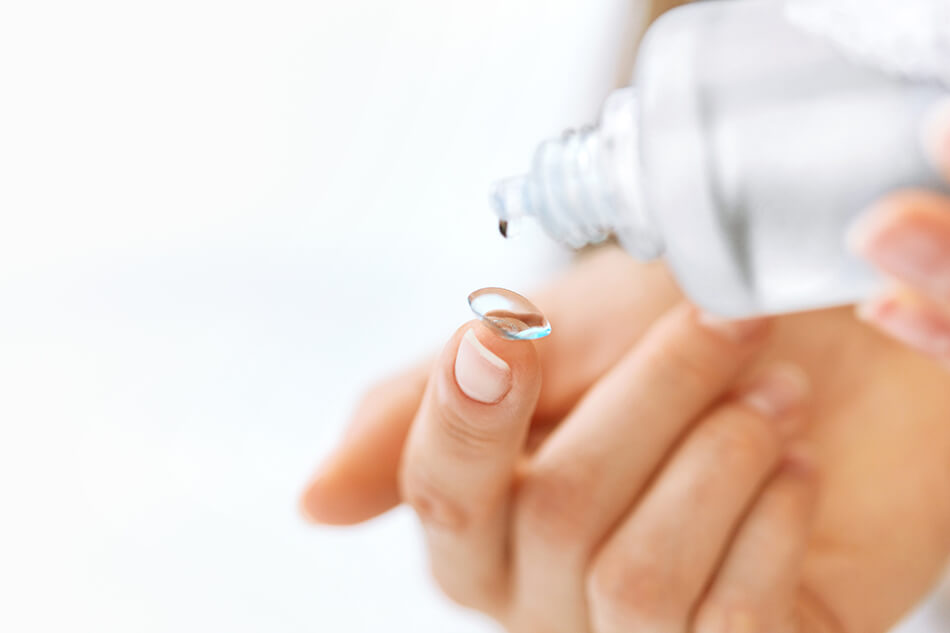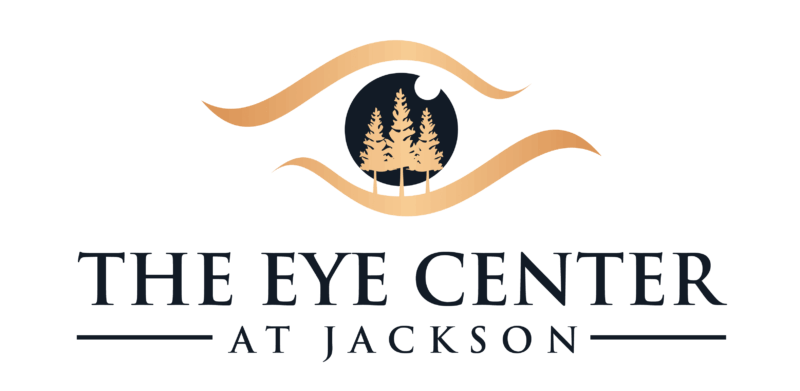Do you want perfect eyesight without the need to rely on glasses or contact lenses? Overnight contacts can fix your vision. This lesser known and less invasive alternative to laser eye surgery is called orthokeratology.
What Is Orthokeratology?

Did you know…?
Orthokeratology, ortho-k for short, is the use of overnight contacts to correct nearsightedness.
Nearsightedness develops when the shape of the cornea is too curved. This alters the trajectory of incoming light to the eye and results in an unfocused image. While you are asleep, these specialized gas permeable (GP) contact lenses reshape your cornea so that you wake up with perfect vision the next day.
The best candidates for ortho-k are people with mild to moderate myopia (nearsightedness). Even more so if you are ineligible for laser eye surgery. Orthokeratology enables you to maintain improved daytime vision without glasses or contacts. Moreover, the process is reversible, so you can start and stop at anytime.
Overnight contact lenses aim to correct refractive errors, but can also help delay the progression of myopia. This is especially valuable for early onset of nearsightedness.
The risk of developing high myopia is greater when nearsightedness begins in childhood or during puberty. People with high myopia are more susceptible to age-related eye conditions, like glaucoma. Early implementation of orthokeratology can reduce the prevalence of high myopia.
It goes without saying, but ortho-k is not suitable for everyone. If you already suffer from high myopia, this process is unlikely to make a difference in your vision. The best way to find out if you are a good candidate is to consult with your eye care professional.
How Does Ortho-K Work?
Unlike regular prescription contact lenses, the GP contacts used for ortho-k are custom-fit and designed for you. As a result, these lenses are only available from opticians trained in ortho-k.
When you begin the orthokeratology process, you have to go through a treatment phase. The treatment phase lasts one to two weeks and gives your eyes time to adapt to the overnight lenses. Depending on your prescription, you may need more or less time to adjust. It is not uncommon to have to wear daily soft contact lenses during the day to compensate for the gradual changes. By the end of the treatment phase, the shape of your corneas will have changed enough to give you clear vision. After consistent use, some people can get away with only wearing their lenses every other night and still maintain the effect.
Besides the reshaping of your corneas, your body will also need to get accustomed to falling asleep wearing contact lenses. If you've never worn contacts before, you may notice the contours of the lenses for the first little while. Even in daytime use, first-time users of GP contacts rarely find them comfortable at the get-go. Rest assured that when fitted well, these contact lenses are painless.
Ortho-K for Athletes

In most sporting activities, excellent visual acuity contributes to optimal performance. So, the type of vision correction you opt for is an important decision. Ortho-K may be the perfect alternative to glasses and contact lenses for you. With overnight contact lenses, you are no longer hindered by daytime vision impairment.
Many athletes prefer contact lenses to glasses for sporting activities. They offer a wider field of view, better peripheral vision, and are less affected by the elements. But contacts have their disadvantages as well. Some athletes dislike the feeling of having something in their eye during competition. Others can't be bothered to bring their contact lenses to practices and games.
Although it happens rarely, contact lenses have been known to fall out on occasion. The risk of this happening can be off-putting to some athletes. Soft lenses, in particular, are more prone to drying out. When contacts become dry, the lens doesn't have enough moisture to stay in the center of the eye. Dry contact lenses can also cause blurry vision.
Lastly, certain environments are less suitable for contact lenses. If you suffer from allergies, your symptoms may be so severe that you cannot tolerate putting in contacts. Pollen and other airborne irritants can stick to the lens and cause discomfort.
Likewise, contact lenses can pose a challenge if you are a swimmer. While a pair of tight-fitting goggles can enable you to see underwater, you are still at risk of infection when you wear your contacts in the pool.
Orthokeratology bypasses all these contact lens-related issues, but keeps the enhanced visual performance.
Are There Risks to Ortho-K?
The risks associated with orthokeratology are no different from any other contact lenses.
As in the case of soft contacts, overnight contact lenses need to be handled with proper care. A clean environment and good hygiene goes a long way to preventing eye infections. You should get into the habit of disinfecting, cleaning, and rinsing your contact lenses after every use. That’s because the buildup of deposits can make the lenses uncomfortable and cause distorted vision.

Orthokeratology and Laser Eye Surgery
People often wonder if they can undergo laser eye surgery following orthokeratology. The answer is yes.
Since the reshaping effects of the cornea are temporary, your eyes will return to their natural shape if ortho-k is discontinued. That said, it is usually recommended by eye care practitioners to wait a few weeks before your consultation.
In the same way, ortho-k remains a viable option for people who have already undergone laser eye surgery.
As long as you are eligible, overnight contacts can fix your vision. Some people look to ortho-k after laser eye surgery because their corneas are too thin for an enhancement, while others, just don't want to go through the process of a second surgery.
In short, ask your local optometrist if ortho-k is right for you!
Credits to the original link: https://www.lenspure.com/articles/overnight-contacts-can-fix-vision
